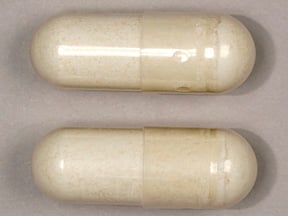
Glucosamine-chondroitin Ds Coupons & Savings Card – Discount Prices from $9.63
Brand for: Glucosamine-chondroitin
My prescription
Edit
500-400MG, Glucosamine-chondroitin (60 Capsules)
Select pharmacy

Albertsons
$9.63
COUPON PRICE
Walgreens
$11.97
COUPON PRICEGlucosamine-chondroitin Ds savings card
Show this card to your pharmacist
Albertsons
$9.63
BIN
ID
PCN
GRP
019876
LHCCD702B1
CHIPPO
LHX
Powered by
Price history for Glucosamine-chondroitin Ds (brand) & Glucosamine-chondroitin (generic)
60 Capsules, 500-400MG
Average retail price for Glucosamine-chondroitin Ds
Average retail price for Glucosamine-chondroitin
Average SaveHealth price for Glucosamine-chondroitin
Our price history data is based on aggregated prescription data collected from participating pharmacies in America. Our prescription data updates daily to reflect the latest price changes. If you notice a missing data point, it means there wasn't sufficient data available to generate a monetary value for that date.
Over the last 12 months, the average discount price of Glucosamine-chondroitin Ds is $8.89 using the SaveHealth savings card. That's an average savings of 47.71% on Glucosamine-chondroitin Ds with our discount card.
*Retail prices are based on pharmacy claims data, and may not be accurate when we don't have enough claims.
Glucosamine-chondroitin Ds (Glucosamine-chondroitin) dosage forms
Dosage Quantity Price from Per unit 500-400MG 60 Capsules $9.63 $0.16 500-400MG 24 Capsules $6.09 $0.25 500-400MG 30 Capsules $7.11 $0.24 500-400MG 90 Capsules $10.69 $0.12 500-400MG 120 Capsules $11.75 $0.10 500-400MG 150 Capsules $12.81 $0.09 500-400MG 180 Capsules $13.88 $0.08 500-400MG 210 Capsules $14.94 $0.07 500-400MG 240 Capsules $16.00 $0.07 500-400MG 400 Capsules $21.67 $0.05
| Dosage | Quantity | Price from | Per unit |
|---|---|---|---|
| 500-400MG | 60 Capsules | $9.63 | $0.16 |
| 500-400MG | 24 Capsules | $6.09 | $0.25 |
| 500-400MG | 30 Capsules | $7.11 | $0.24 |
| 500-400MG | 90 Capsules | $10.69 | $0.12 |
| 500-400MG | 120 Capsules | $11.75 | $0.10 |
| 500-400MG | 150 Capsules | $12.81 | $0.09 |
| 500-400MG | 180 Capsules | $13.88 | $0.08 |
| 500-400MG | 210 Capsules | $14.94 | $0.07 |
| 500-400MG | 240 Capsules | $16.00 | $0.07 |
| 500-400MG | 400 Capsules | $21.67 | $0.05 |
What is glucosamine chondroitin good for?
Glucosamine chondroitin is commonly used as a dietary supplement to support joint health. It is often taken to help alleviate symptoms of osteoarthritis, such as joint pain and stiffness, by potentially improving joint function and slowing cartilage degradation.
What are the negative side effects of glucosamine chondroitin?
Glucosamine chondroitin is generally well-tolerated, but some individuals may experience negative side effects. These can include gastrointestinal issues such as nausea, diarrhea, constipation, and heartburn. Some people may also experience headaches, drowsiness, or skin reactions. Additionally, glucosamine is often derived from shellfish, so individuals with shellfish allergies should exercise caution. It's important to consult a healthcare provider before starting any new supplement, especially for those with pre-existing health conditions or those taking other medications.
Who should not take glucosamine chondroitin?
Individuals who should avoid taking glucosamine chondroitin include those with shellfish allergies, as glucosamine is often derived from shellfish. Additionally, people with diabetes, bleeding disorders, or those taking blood thinners should consult a healthcare provider before use, as glucosamine may affect blood sugar levels and chondroitin may increase bleeding risk. Pregnant or breastfeeding women should also seek medical advice before taking these supplements.
Does glucosamine chondroitin really help your joints?
Glucosamine chondroitin is often used as a dietary supplement with the aim of supporting joint health. Some studies suggest that it may help reduce pain and improve function in individuals with osteoarthritis, particularly in the knees. However, the evidence is mixed, and not all studies have shown significant benefits. It may be more effective for some individuals than others, and it is generally considered safe for most people. It's advisable to consult with a healthcare provider to determine if it might be beneficial for a specific condition.
Are there any side effects from taking glucosamine and chondroitin?
Yes, glucosamine and chondroitin can have side effects. Some individuals may experience mild side effects such as nausea, diarrhea, constipation, heartburn, or stomach pain. Allergic reactions are possible, especially for those with shellfish allergies, as glucosamine is often derived from shellfish. Additionally, there may be an increased risk of bleeding, so individuals taking blood thinners should consult their healthcare provider. It's important to discuss with a healthcare professional before starting these supplements, especially if there are pre-existing health conditions or other medications being taken.
